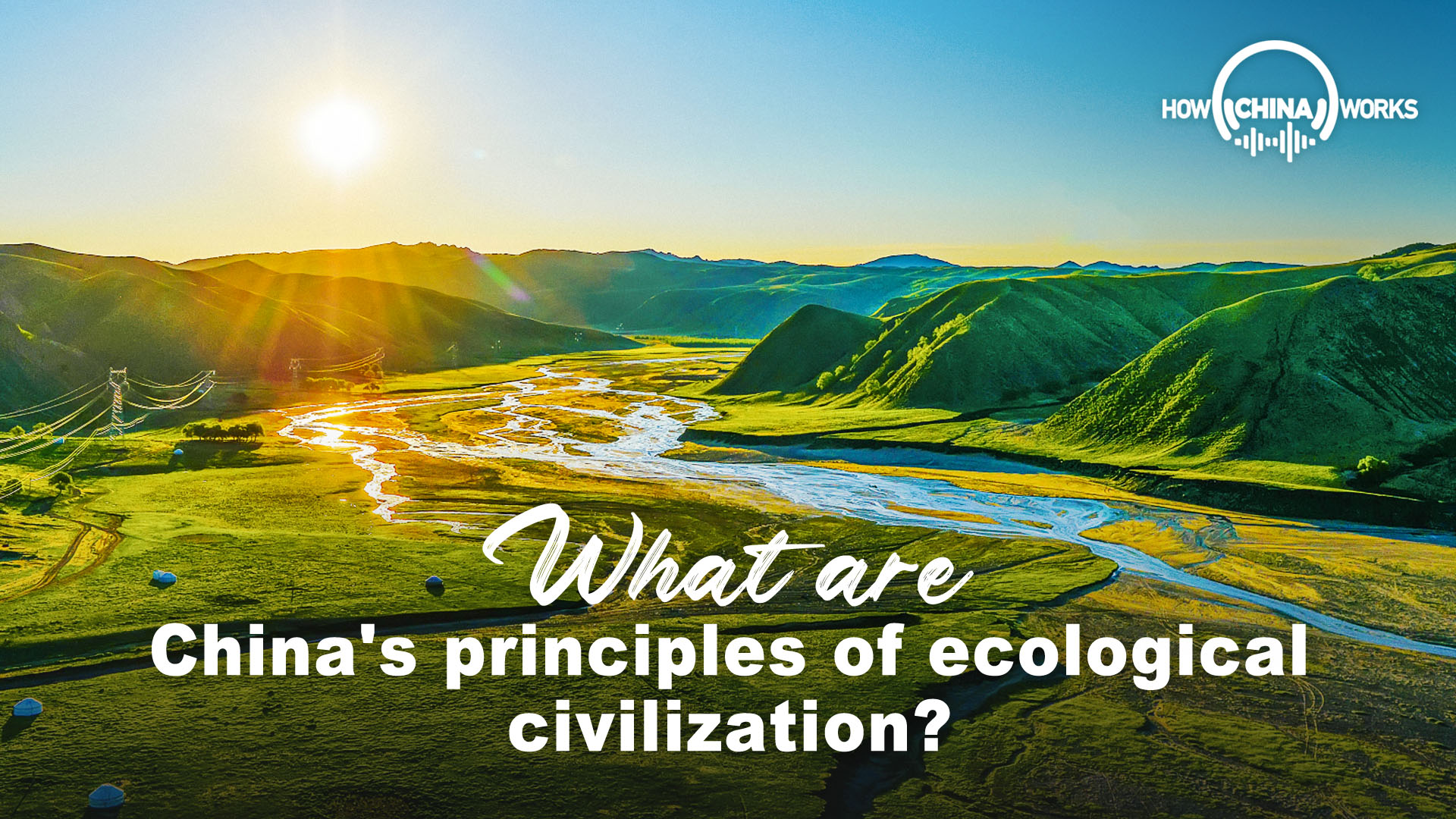Chinese SOEs are social enterprises that effectively balance the demands of multiple stakeholders. More importantly, China’s institutions provides a better supporting ecosystem for SOEs to reinforce the creation of social value when pursuing value maximization. The Chinese SOEs are able to sacrifice profits and efficiency to fulfill social roles (including environmental ones) when necessary.
State-owned enterprises (SOEs) are important components of the Chinese economy. Although SOEs are generally considered inefficient in operations, particularly by Western economists, China’s economy, which relies heavily on SOEs, has been highly successful over the last four decades. This indicates the importance of SOEs in China’s past and future economic success.
It is therefore no surprise that US criticism of China’s economic model are frequently focused on the role of such social enterprises – a model that is complete anathema to neo-liberal capitalism.

A recent study by Chinese academics at the Center for Accounting, Finance and Institutions, Sun Yat-Sen University in China, reviewed the literature on economic theories and 40 years of practice of Chinese SOEs.
Below we reproduce an extract from the research, which was published in full in the China Journal of Accounting Research (Volume 13, Issue 1, March 2020, Pages 31-55). https://doi.org/10.1016/j.cjar.2019.12.001
SOEs’ actions to protect the environment
While the market expects firms to fulfill its economic mission within the framework of legal requirements, firms are expected to do what is right, just, and fair to fulfill their ethical responsibility (Carroll, 2004). In addition to the important role played by Chinese SOEs in employment, as discussed elsewhere in the article, the country has witnessed substantial growth in corporate social responsibility-related (CSR) activities (Zhang et al., 2010), as the Chinese government has strongly promoted the concept of CSR and encouraged corporations to actively engage in socially responsible activities, including environmental protection and corporate philanthropic giving.
Previous studies analyze how the spread of CSR norms and practices in China has driven and been fueled by regulators’ attention to CSR (See, 2009, Moon and Shen, 2010, Wang and Qian, 2011). In a broader context, the Chinese government and the CPC have issued numerous pronouncements about the importance of all citizens and organizations increasing their social responsibility (e.g., the sixth plenary session of the 16th Party Central Committee, 2006) and about the national commitment to enhancing China’s capacity for sustainable development (e.g., President Hu Jintao’s report to the 17th National Congress of the CPC, 2007; President Xi Jinping’s reports to the 18th and 19th National Congress of the CPC, 2012 and 2017). A number of CSR guidelines and initiatives have been published as a strategy for large companies to balance the social and environmental effects of rapid economic growth.13 These administrative, regulatory, and legal documents emphasize the determination of government policies to promote the adoption of CSR by SOEs.

In China, disclosing environmental protection information is a mandatory requirement of regulators rather than a voluntary action of firms. Although mandatory CSR disclosure modifies firm behavior and generates positive externalities, with evidence proving that firms reporting mandatory CSR experience a decline in profitability, Chen et al., 2018a, Chen et al., 2018b find that firms spending more on environmental protection are those of the most polluting industries, not SOEs in particular. Given that political connections motivate political rent-seeking in SOEs, corporations obtaining a “green image” and becoming a “green company” by providing environmental reports become the capital of executives’ promotion. Firms run by former government officials are more likely to spend on CSR to seek private political benefits (Hung et al., 2012). For instance, Cheng et al. (2017) find that political connections can significantly increase the level of corporate environmental information disclosure (CEID), especially in highly polluting industries.
Using the perspective of social enterprise to explain the Chinese SOEs
China’s SOE reform has been central to China’s economic reform over the last 40 years. Therefore, many studies examine and explain SOEs’ performance, financial behavior, corporate governance, and social responsibility. The literature on the theories of SOEs is well developed, and the reform of Chinese SOEs is based on these theories and an empirical approach in practice. However, current research reaches no consensus on what the best practices are for Chinese SOEs. For example, given their externalities, why do SOEs perform well and support China’s rapid economic development? How can the SOE system be linked with the Chinese political system to become efficient? Future research should build on current evidence of the inefficiency of state ownership and focus on constructive suggestions on how to improve SOE efficiency based on the political ecosystem of China.
A remarkable feature of SOEs is their corporate governance, which is a nexus of formal and informal institutions, contracts, and corporate policies to address conflicting objectives between insiders and outsiders. Concentrated ownership increases the complexity of agency problems in Chinese SOEs. Unlike those in the western companies, insiders in Chinese SOEs are the controlling shareholders and managers. Evidence is mixed regarding whether and how different types of corporate governance mechanisms (e.g., laws, regulations, contracts, corporate policies) contribute to corporate valux maximization. We deemed the following questions interesting. First, it would add insights to the existing literature to investigate the roles of SOEs’ managers and board members in the labor market, since individuals, including managers and board members, make decisions based on their knowledge and incentives (Brickley and Zimmerman, 2010), which depends on the efficiency of the labor market. Second, existing evidence regarding how corporate governance mechanisms interact is scarce, which can be supplemented by future research. Third, the functioning of corporate governance mechanisms still depends on the quantity and quality of information. Using new data technologies, such as big data, future research should analyze the effect of new data and information dissemination technologies on the functioning of corporate governance mechanisms.

The analysis of CSR activities in China’s SOEs allows us to understand the current state of research and practice and to further explore research questions in this area. First, in recent decades, the CSR practices of Chinese SOEs have been considered as a burden and as discretionary activities required by the government, leading to inefficient practices. The Chinese government is the primary resource allocator of the economy, and is expected to build a harmonious society through initiatives in promoting employment and employee benefits, training and education, environmental protection, and poverty alleviation. The Chinese SOEs respond to the orders and recommendations of the government. Although Friedman (1970) argues that the social responsibility of a business is to increase profit, other researchers view that integrating social responsibility and profit maximization facilitates social changes (Mulligan, 1986). Over the last two decades, studies have addressed important questions about the creation of goodwill, reputation, image, or status, collectively and loosely termed “social evaluations.” Therefore, future research can contribute to the literature by examining how organizations seek and benefit from social evaluations (George et al., 2016, Wang et al., 2016). While the Chinese government strongly encourages CSR practices, CSR is likely to go beyond companies doing the right thing. To some extent, the CSR practices of Chinese SOEs shift their production and profitability responsibilities to help maintain social stability. With the spread of CSR norms and practices in the country, the number of NGOs in China is increasing, creating a demand for improving business reputation (Moon and Shen, 2010). As a result, Chinese SOEs must work effectively with many stakeholders (Bruton et al., 2015) to meet the CSR requirements set by the government to avoid reputational damage and conflicts of interest. Therefore, future research should focus on the pressures, incentives, strategies, and economic consequences of CSR decisions made by SOEs in China.
Finally, the theories and practice regarding the Chinese SOEs and the “China puzzle” seem to suggest a new explanation of the Chinese SOEs – the social enterprise theory. Social enterprises refer to a prime example of hybrid organizations in Western countries; they were created to achieve social goals, yet through business methods (Brakman Reise, 2013). Therefore, they are different from for-profit and not-for-profit organizations, and can be defined as organizations that integrate both social logic and financial logic (Battilana and Dorado, 2010).
Chinese SOEs are companies fitting the social enterprise concept in that they are set to balance the demand of multiple stakeholders effectively (Bruton et al., 2015). More important, China’s institution provides a better supporting ecosystem for SOEs to reinforce the creation of social value when pursuing value maximization. SOEs could sacrifice profits and efficiency to fulfill social roles when necessary. Such a characteristic enables the Chinese government to focus on developing social welfare with supporting economic infrastructure, and thus makes the “China puzzle” feasible. We believe using the perspective of social enterprise to explain the Chinese SOEs will enrich future studies regarding SOEs.
[See original research paper for footnotes and sources – [ https://doi.org/10.1016/j.cjar.2019.12.001 ]
Source: Proletarian SciTech, 9 August 2021
Leave a Reply
You must be logged in to post a comment.